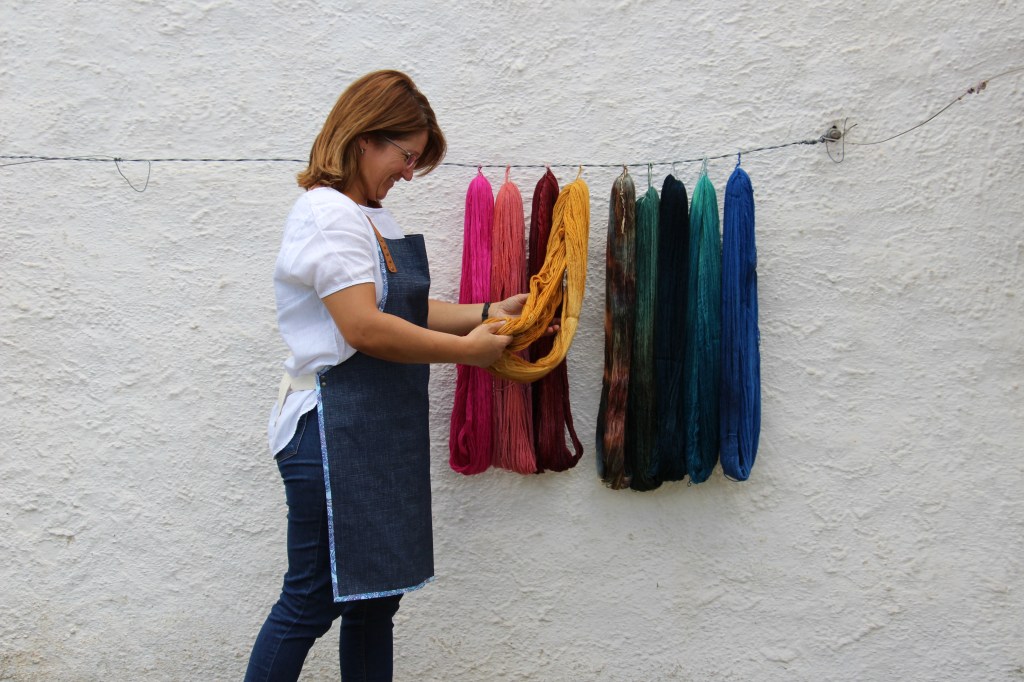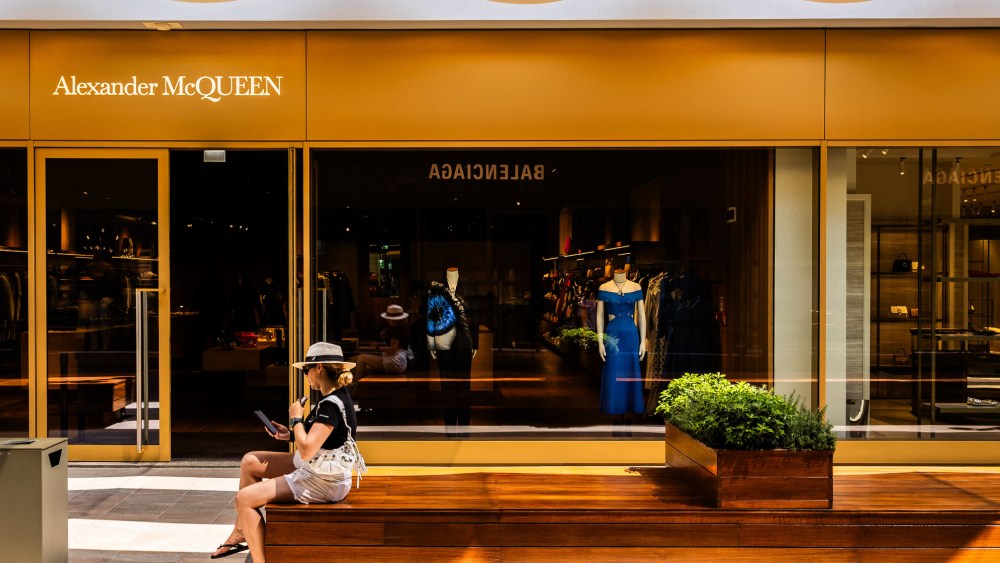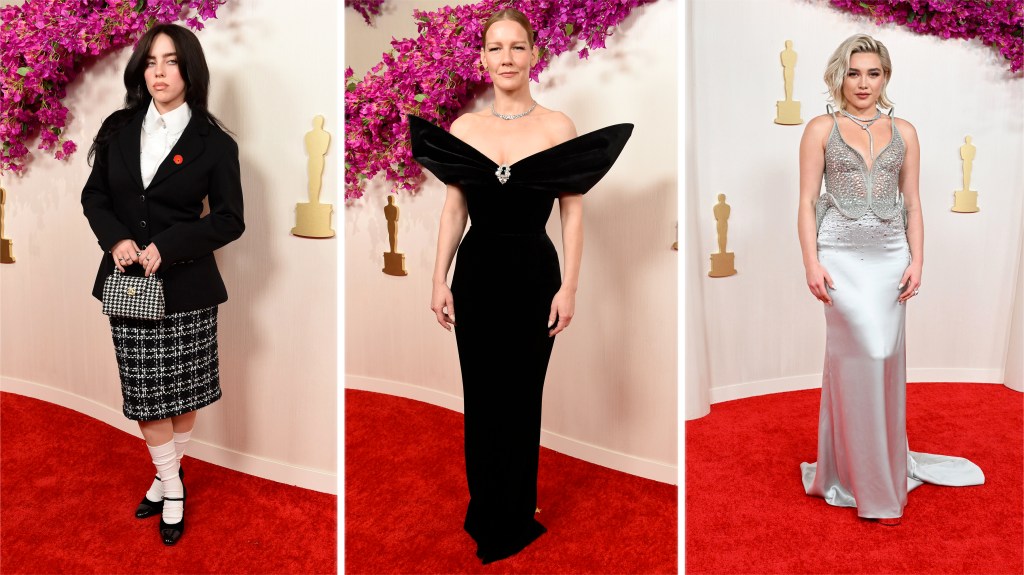Chloé is proving that a luxury fashion house can be both A-list and B Corp.
The Paris-based firm, which has a collaboration with Angelina Jolie’s new clothing brand Atelier Jolie dropping in January, has been at the forefront in using planet-friendly fabrics, lowering its carbon footprint and aiding biodiversity — all while logging healthy sales gains thanks to hit products like Nama sneakers, recycled denim apparel and linen Woody tote bags.
Late in 2021, Chloé became the first European luxury maison to receive B Corp status, a major stepping stone on its long path to fully becoming a company that is purpose-driven, planet-friendly, community-based and accountable.
For these reasons, WWD is handing Chloé its 2023 Corporate Citizenship Honor, acknowledging the company’s innovative push — and multiple accomplishments to date.
Accepting the award on behalf of the company will be Franck Grandidier, president and chief executive officer of Richemont Americas’ fashion division. Swiss fashion group Richemont owns an array of fashion and accessories maisons, including Montblanc, Alaïa, Dunhill, Delvaux, AZ Factory, Gianvito Rossi, Peter Millar, AZ Factory, Purdey and Serapian.
Among Chloé’s environmental goals for 2023 is a 27 percent reduction in water consumption and global emissions per product, and to ban the use of all virgin synthetic fibers for ready-to-wear effective with the fall 2024 collection, excepting elastane and sewing thread. By 2025, it plans to use only wool that is recycled or certified by the Responsible Wool Standard.
This year, it is striving to use an average of 65 percent low-impact materials on rtw collections, and assure at least 20 percent of rtw manufacturing reflects fair trade and social sourcing. Last year, 12 percent of the offer comprised fair-trade guaranteed products.
The company open-sources its guidelines for responsible sourcing, making the document available for download on its website.

The company is also in the midst of compiling its first Social Profit & Loss account, modeled after the Environmental Profit & Loss approach pioneered by Kering. Chloé’s methodology was developed in partnership with the Institut Français de la Mode and the Conservatoire National des Arts et Métiers, and reviewed externally by the consulting firm PricewaterhouseCoopers.
Systematic collection of social data from operations and the supply chain has been deployed and by the end of Chloé’s fiscal year, all rtw manufacturing suppliers will have answered its questionnaire.
“By publishing the SP&L approach methodology, Chloé hopes to further contribute to the conversation on social impact and to participate in scalable and lasting change on topics such as gender equality and living wages, so vital to our industry,” the company said in its latest impact report covering its fiscal year ended March 31. “As socioeconomic factors, local regulations and industry standards on social impact evolve over time, so will our tool.”
Billing itself as a women-first company, Chloé notes that women make up 81 percent of employees at its headquarters in Paris, and 83 percent internationally, with 70 percent of top management positions held by women.
It also boast four Women Forward Partnerships, which support organizations working to close the gender gap in education and employment. These include UNICEF, where Chloé’s Girls Forward partnership has helped more 95,000 girls to date.
Founded in 1952 by Gaby Aghion and controlled by Richemont since 1988, the fashion house has been helmed by a rotating cast of talents, lately weighted toward designing women. These have included Phoebe Philo, Clare Waight Keller, Martine Sitbon, Stella McCartney, Hannah MacGibbon and Natacha Ramsay-Levi.
Next up is Chemena Kamali, an alumna of Saint Laurent, Strenesse and Frame, who also worked at Chloé in two separate stints earlier in her career. Kamali takes over from Gabriela Hearst, who recently wound up a three-year tenure as creative director during which she drummed up awareness about the climate crisis with each collection, and drove Chloé’s sustainability commitments.
Hearst recently pointed out that the sustainability team was one person when she arrived and it now numbers 12.
Chloé started on its new path with the arrival in late 2019 of CEO Riccardo Bellini, who recognized in Chloé’s roots a strong commitment to women’s freedom and progress. This inspired him to retool the brand’s business model to one that is purpose-driven, community-based and accountable, in addition to being highly creative.
The former CEO at Maison Margiela made a bold declaration in a 2020 interview with WWD: “We’re moving from a phase of collections to a phase of connections.…What a brand stands for, its beliefs and values, will become as relevant as products and aesthetics.”
What’s more, Bellini maintains that 80 percent of environmental issues are solved at the design table.
For example, the executive had identified sneakers as an opportunity for Chloé, which Hearst initially resisted, largely because of the traditionally damaging production processes around this kind of footwear. This unleashed an unorthodox design along with a host of technical solutions and innovations, up to and including water-soluble glue.

Hearst tied each of her collections to a “climate success,” spinning a narrative around her clothes while also educating the industry about things like fusion energy, and the role women play in protecting the environment.
During Hearst’s tenure, Chloé earned its B Corp certification, with transparency into its materials, including linen grown using low-impact farming techniques that is spun and woven domestically, silk that carries the Global Organic Textiles Standard certification, and leather sourced from French farms and tanned by a tanner that carries the Entreprise du Patrimoine Vivant (or Living Heritage Company, in English) label.
What’s more, the brand began incorporating digital IDs into its clothing, starting with the spring 2023 collection, for traceability and to promote circularity through resale.
It is understood that under Kamali’s creative leadership, the company will pursue efforts and developments in the sustainability field, in line with its long-term strategy. Kamali is to unveil a pre-fall collection next January, followed by a runway debut for fall 2024 during Paris Fashion Week a month later.
The company’s impact report notes that its sustainability objectives “have been translated into personal objectives or KPIs (key performance indicators) for each of our employees across all departments. This HR strategy was designed to foster general collaborator mobilization and contribution to Chloé’s sustainability ambitions throughout the company.”
“Every time we launch a new product, we ask ourselves, ‘How can we decrease that environmental impact? How can we use the power of our sourcing to create a larger value for our communities and stakeholders?’” Bellini told WWD in an interview earlier this year, describing a “constant trade-off” between business ambitions and Chloé’s ecological and social principles. “What unites us, especially in those difficult moments, is this shared conviction and shared ambition to prove something that today does not exist.”
In March, Chloé became what is called a mission-driven company under French law, which legally transformed its Sustainability Advisory Board into an official purpose-driven oversight committee.
“This committee will ensure that Chloé acts in accordance with its company purpose and will validate our Impact and Environmental reports moving forward,” the impact report noted. “Mission-driven companies believe that it is possible to have a positive impact on social or environmental issues while considering all stakeholders and staying committed to product development, profit, social responsibility and sustainability. This status means that the maison is not only accountable for achieving financial goals but also for meeting environmental and social targets.”
It is understood Chloé has set an internal target of 1 billion euros in revenue, but without a specific timeframe in mind, given how closely its business growth is tethered to its social and environmental sustainability ethos.



